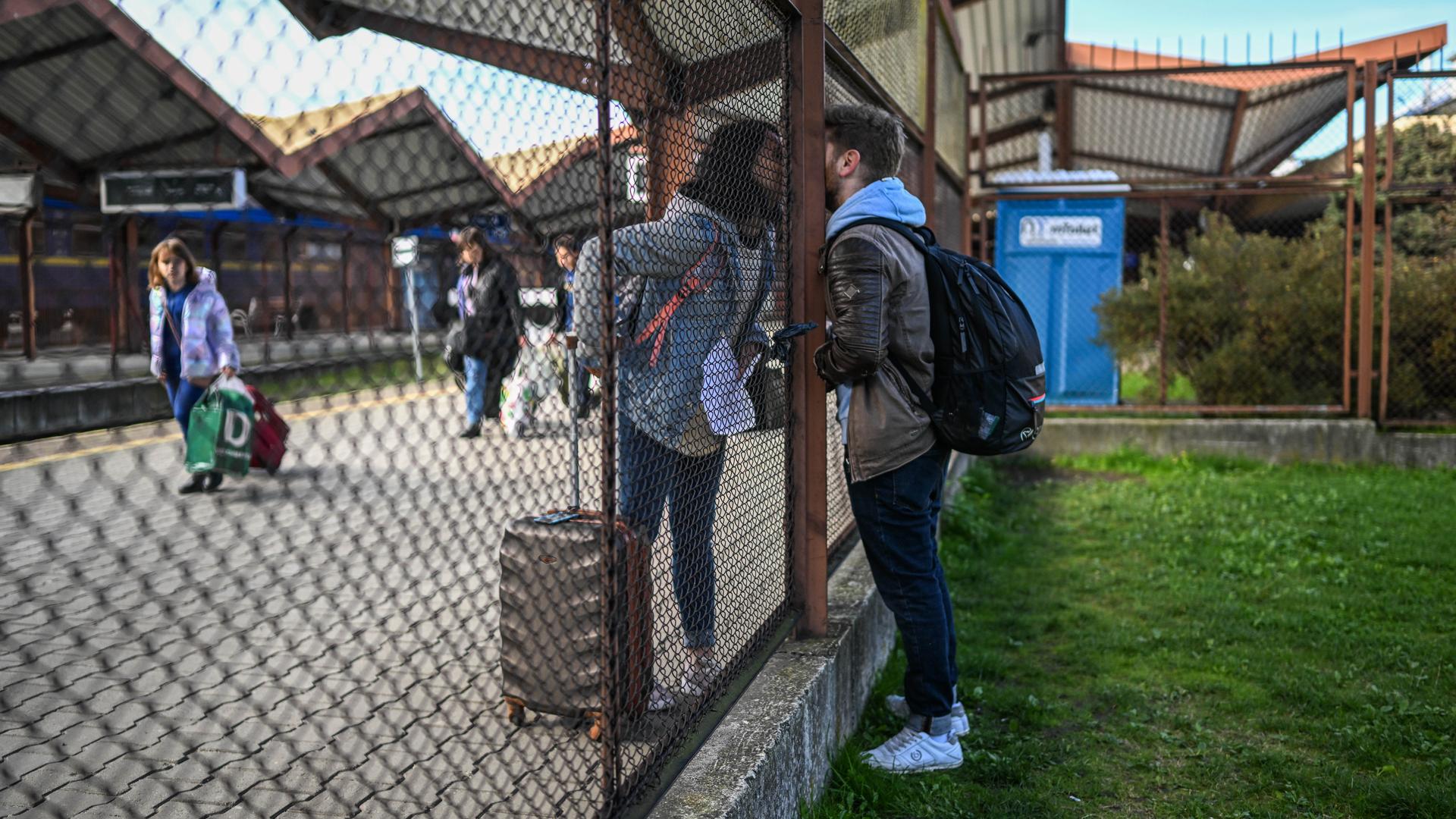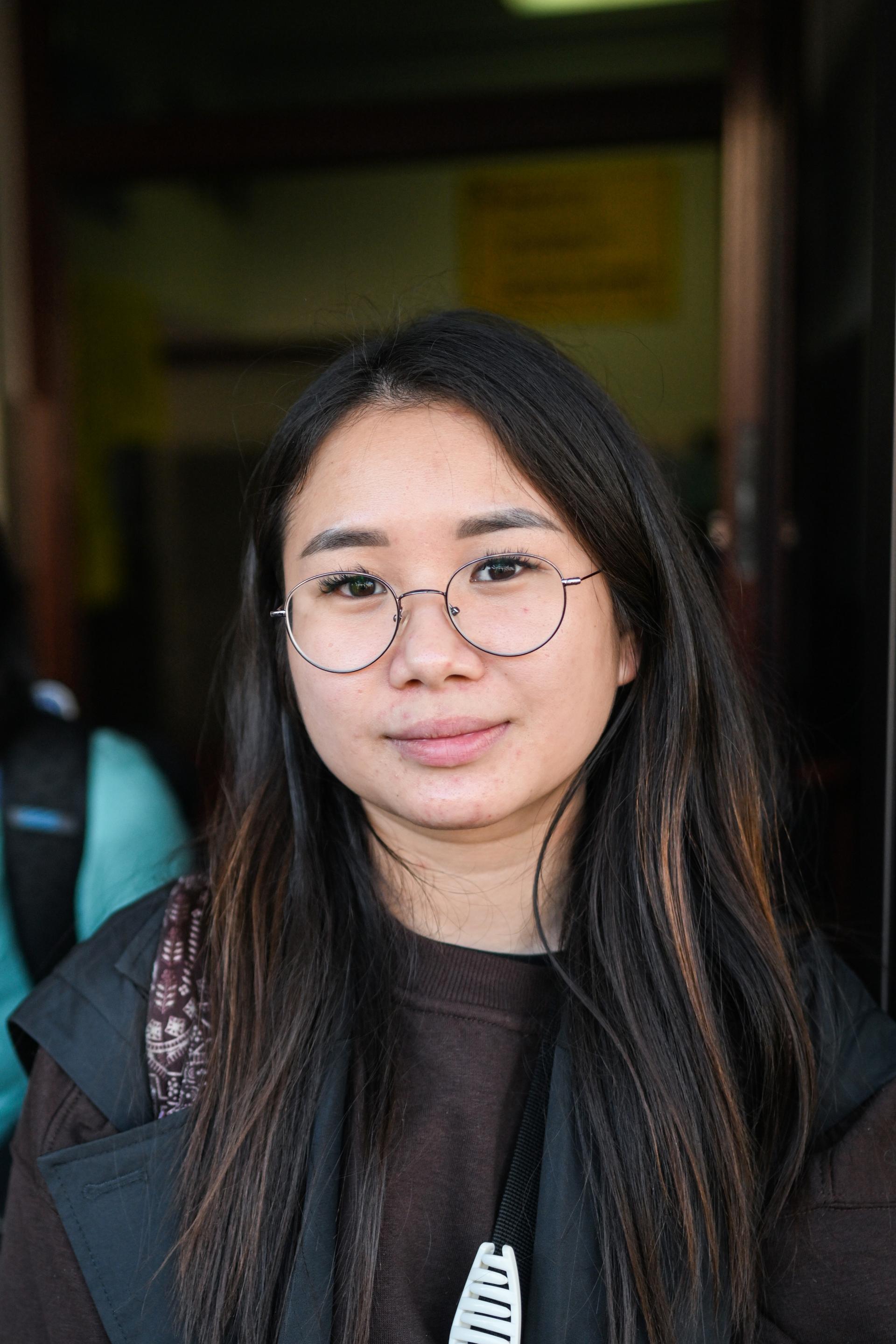
Zuna Nhuien hasn’t been to her home of Kharkiv — Ukraine’s second-largest city — since early March.
But the 23-year-old said that she could not contain her excitement as she prepared to board the next train from Przemyśl, which lies on Poland’s border with Ukraine, to Kyiv.
“I’m not scared,” she said. “Maybe that sounds naive, but I just really miss my home.”
She’s not sure what she’s coming home to, though. Kharkiv has been under Russian shelling for months, but she still calls her city “the most beautiful place in the world.”
Nhuien is one of hundreds — mostly women and children — lined up outside the central train station in the southeast Polish town of Przemyśl, which for months, has been the gateway into Europe for Ukrainians fleeing Russia’s invasion of their country.
In the early days of the war, which began on Feb. 24, some 50,000 people crossed through here every day. That was seven months ago, when civilians were traveling in one direction — west. These days, there is more of an even split between those crossing in and out of Ukraine, with about 25,000 people traveling in each direction.
Especially given Russia’s latest escalation, understanding why so many Ukrainians are heading back into a war zone may seem confusing. But the majority of people whom The World spoke with at the central train station in Przemyśl kept repeating the same refrain: “Ukraine is home.”
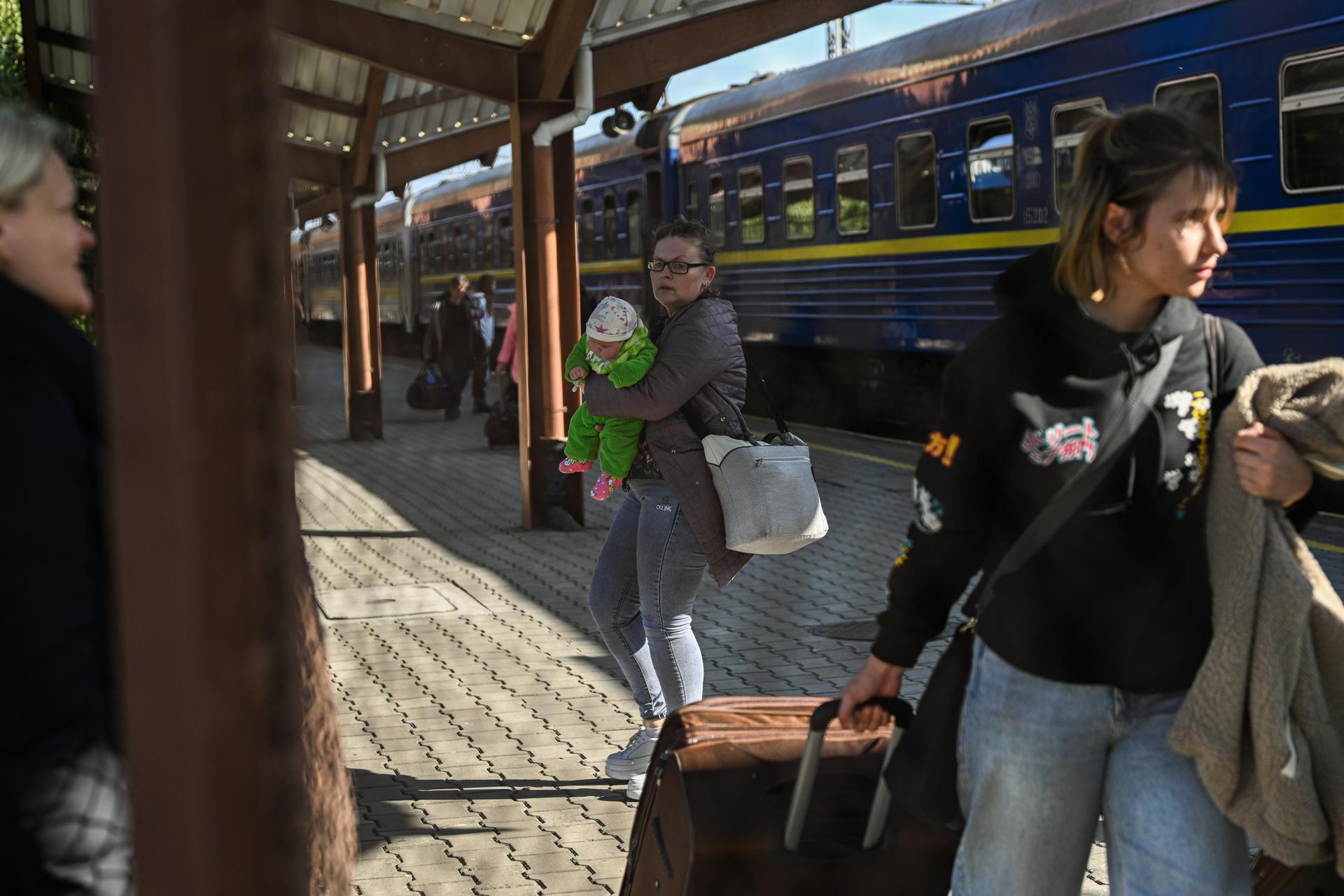
“[The decision] is easy,” said a 28-year-old woman from Kyiv who didn’t want to give her name.
The woman — who has never fully left her home in Kyiv since the start of the war — held hands with her boyfriend, who lives in Germany. The two met as pen pals during the early days of the war. Asked if he plans to visit her in Kyiv, he said that he wants to but was discouraged.
“It’s not safe,” she said. “Why would he risk his life? It’s not his war.”
Safety concerns aside, she reiterated that she’s not scared to go home.
“The fear just left me after the first months,” she said. “Now, you just have anger and you want it to be over … that’s all.”
At the town hall in Przemyśl, officials made preparations for a long winter.
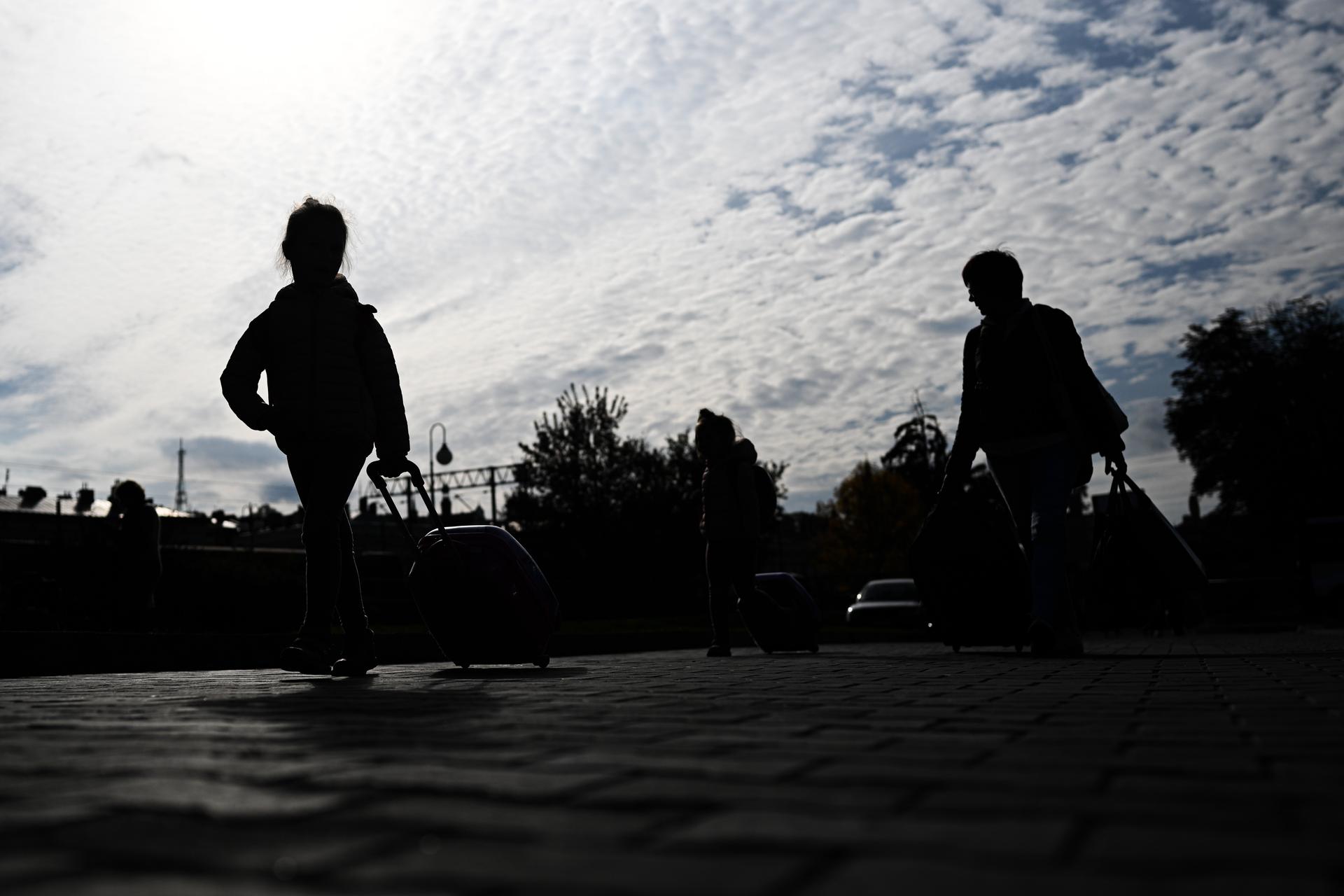
Boguslaw Swiezy, the deputy mayor of Przemyśl, said that the city is expecting an even second, larger wave of Ukrainian refugees this winter.
Already, more than 6.7 million Ukrainians have crossed into Poland since the start of the invasion, according to UNHCR data.
“We are afraid the next wave of refugees will be moved by the energy crisis and problems with heating their homes,” Swiezy said. “Winter is coming, and we expect that the winter will push another wave of refugees, especially from eastern Ukraine.”
Russian strikes have destroyed 30% of power stations in Ukraine since Oct. 10, Ukrainian President Volodymyr Zelensky said on Tuesday. Damage to infrastructure across the country — including residential buildings — only exacerbates the situation.
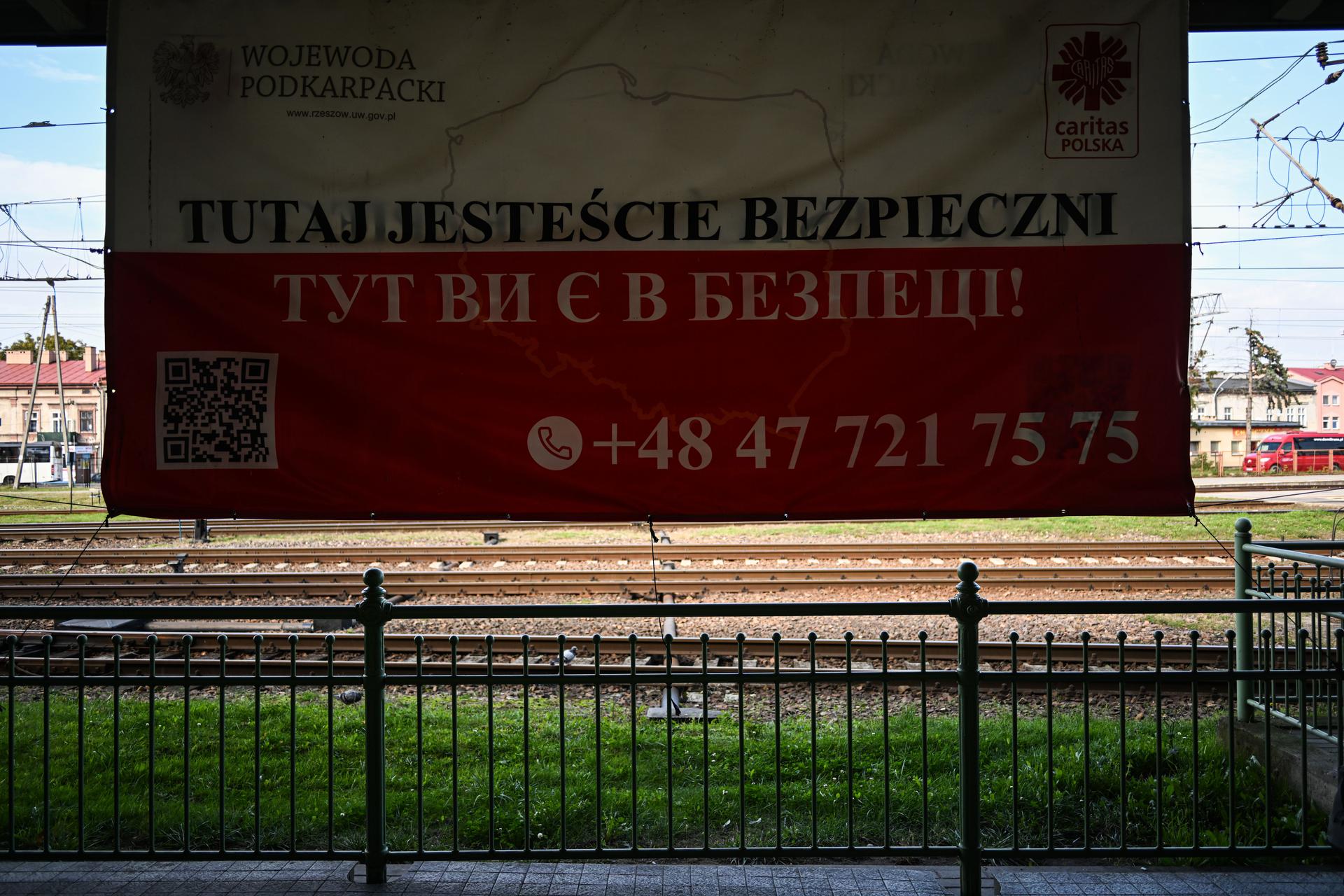
“We must prepare for the next winter — in our state, on our land, for all citizens,” Zelenskiy warned in June.
In Przemyśl, Swiezy said that the city is preparing to add more reception points at the border for refugees plus 150 long-term accommodations for those who choose to resettle there (the city has mostly been a point of passage for Ukrainians entering the European Union.)
Przemyśl is also one of hundreds of towns that have received their first shipments of iodine pills from the Polish government — evidence that Poland is taking Russian President Vladimir Putin’s nuclear threat seriously.
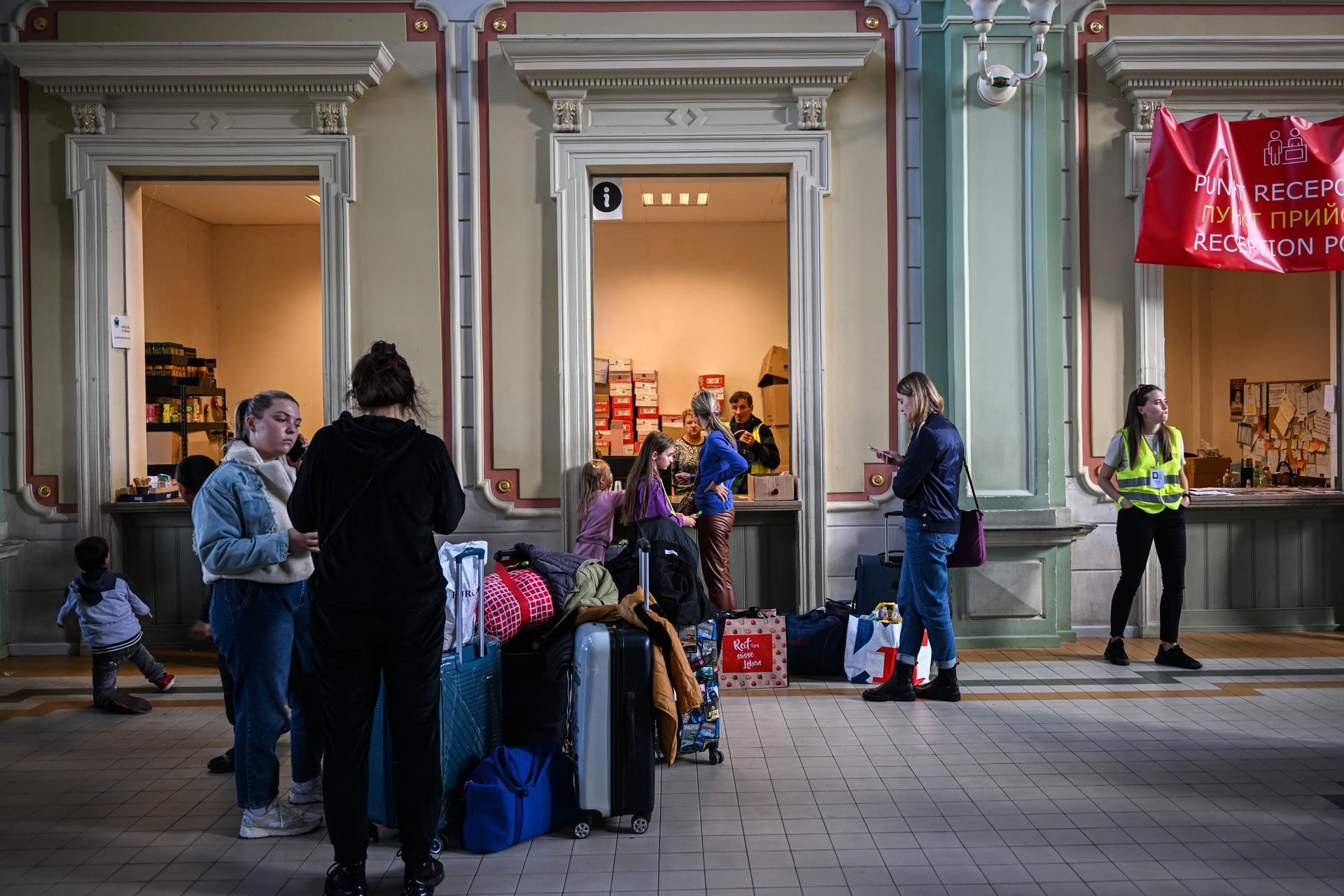
Back at the central train station in Przemyśl, another train pulled into the station — this one from the eastern Ukrainian city of Zaporizhzhia, home to Europe’s largest nuclear power plant.
One of the first people to exit the train was a woman named Irina, who was visibly stressed and tired.
She said that she and her husband tried moving back home to Zaporizhzhia just a few weeks ago after spending months living in Europe.
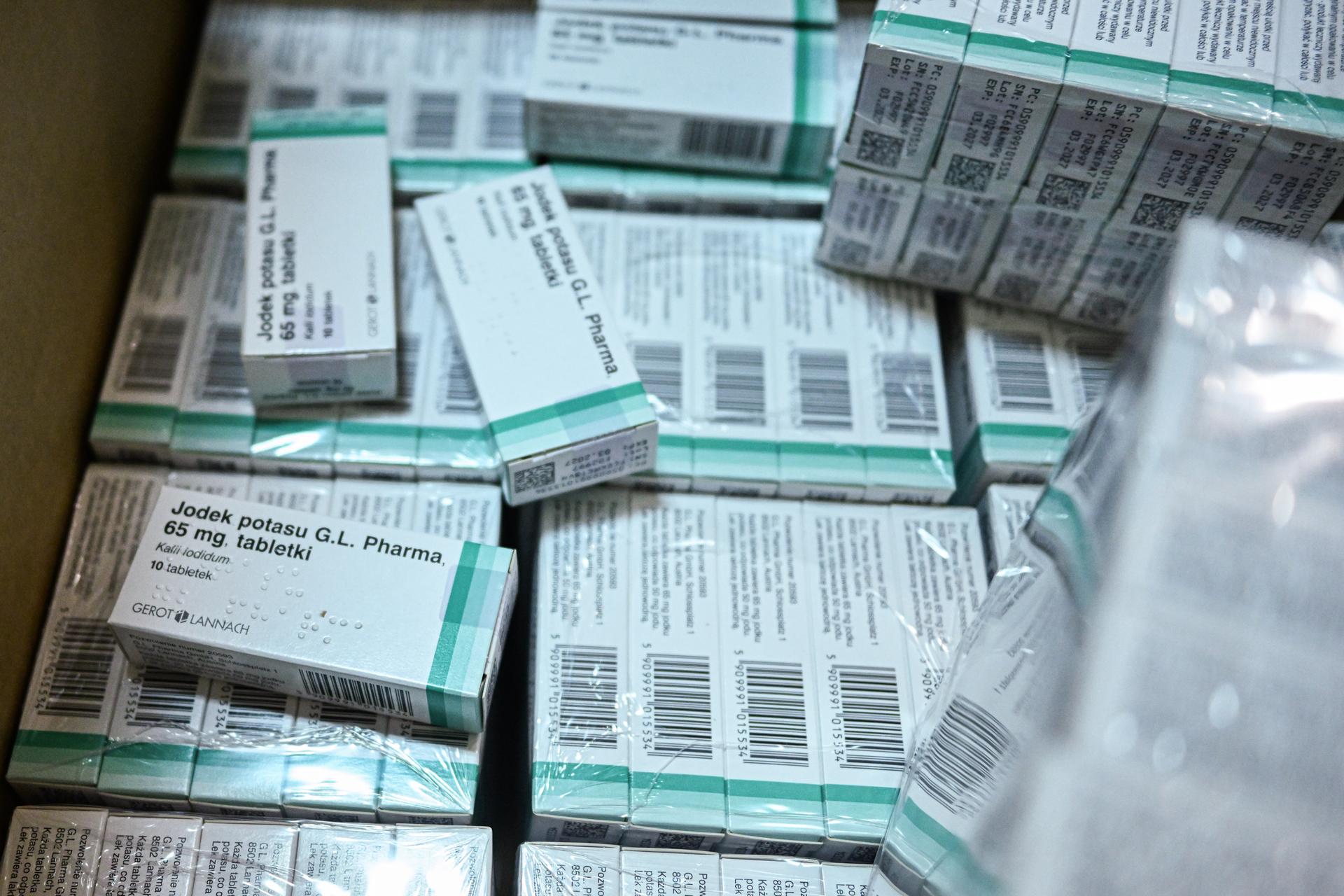
But in the last few days, there have been more missile attacks in Zaporizhzhia, so they decided to leave again.
“We feel like we’ve been thrown out of our own city,” she said, waving her hand in disgust and then, walking away before The World could get her last name. They now plan to stay in Poland for the indefinite future.
Two young brothers, Alex and Dima R. — who didn’t want to give their full last names for safety reasons — are also from Zaporizhzhia but have been living in the Czech Republic for two years now.
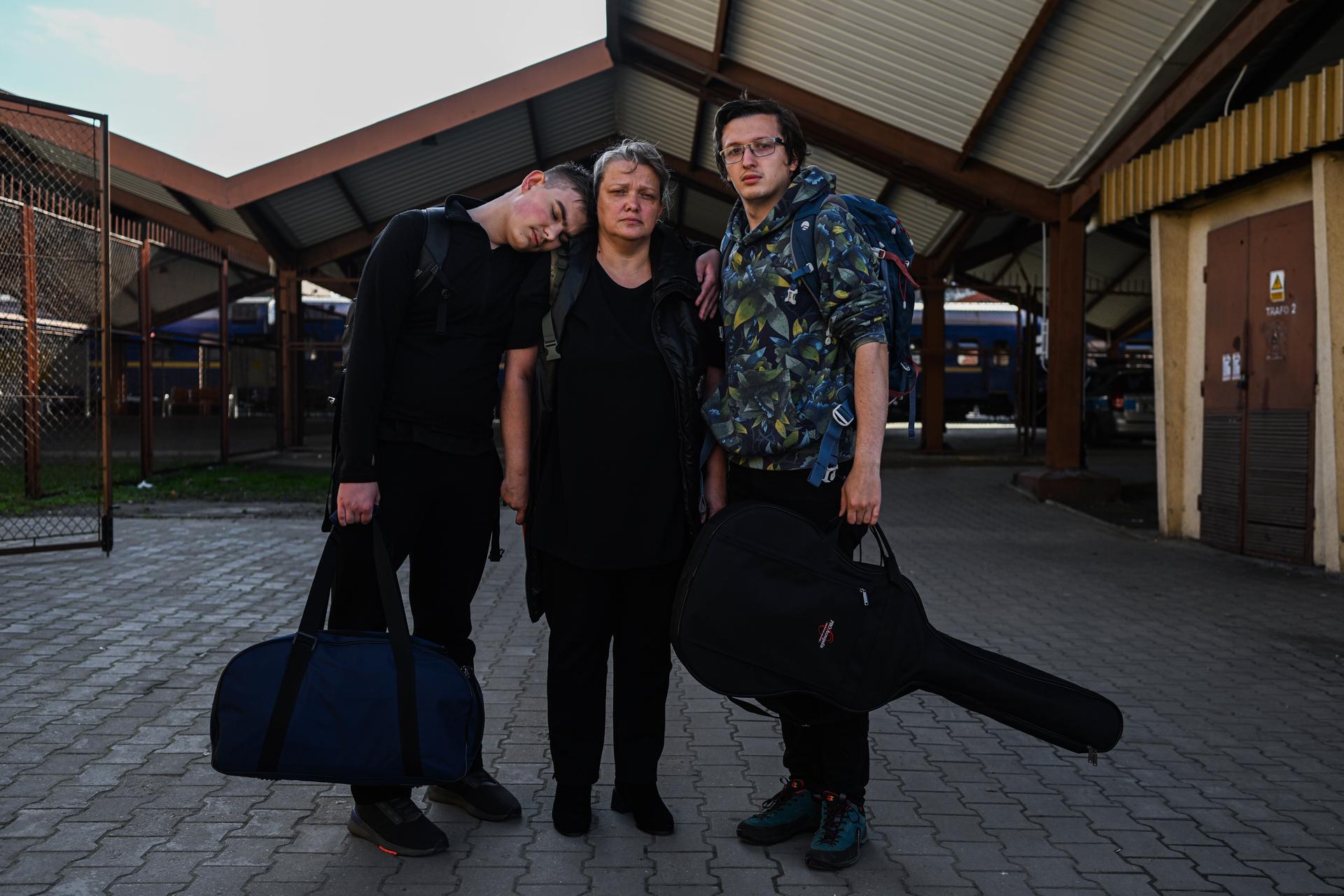
Alex said that they’ve come to the station to pick up their mom who has been in Ukraine for the last month.
“The problem is our stepdad … he was in the war … and … ”
The 25-year-old stopped himself for a few seconds before going on: “He was badly injured at the end of August and passed away in September. So, our mom had to get to Ukraine to fill out paperwork and prepare his funeral and stuff.”
At this point, they don’t know when or if they will go back home.
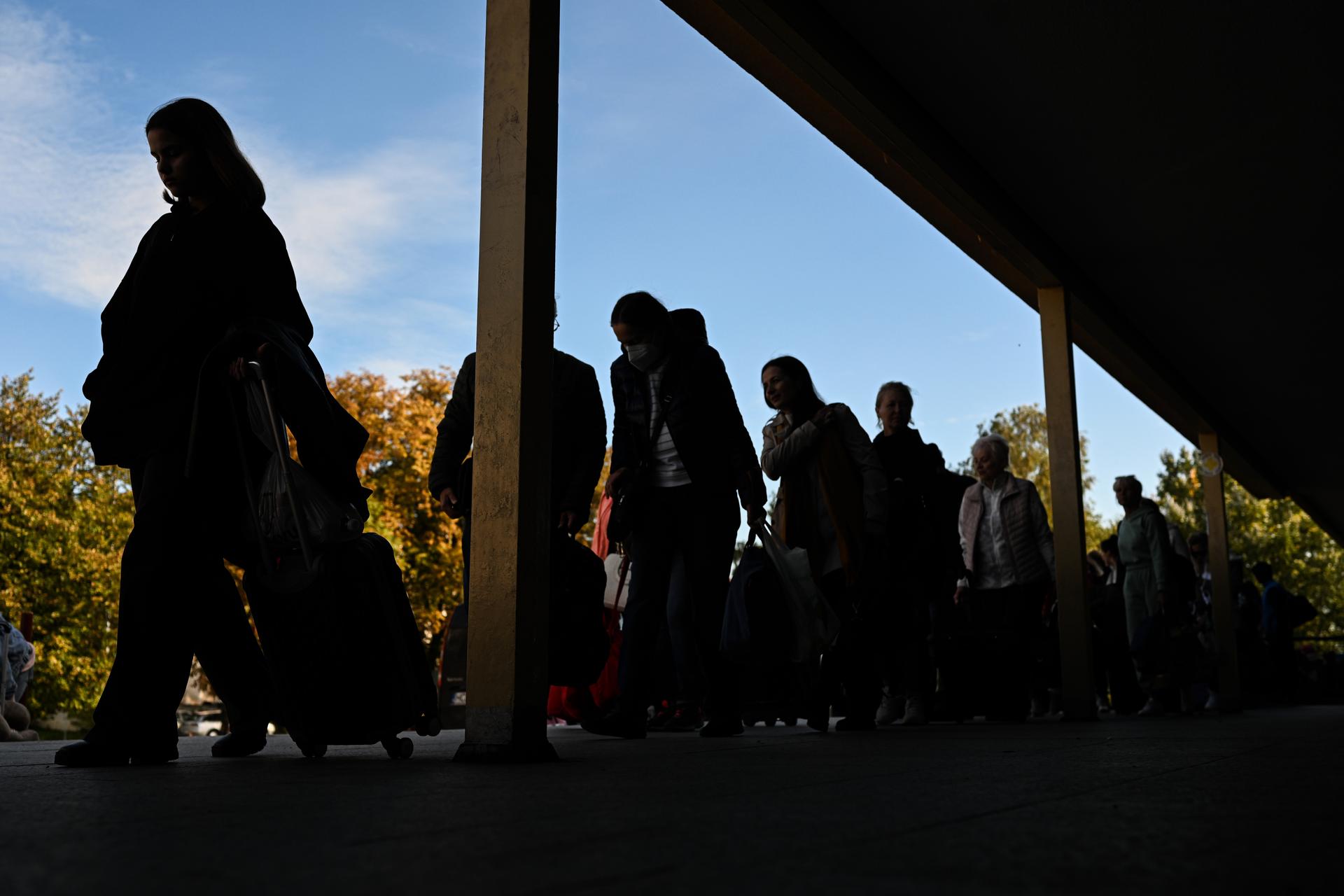
The same goes for Olga Balabanova, a 35-year-old professional runner who said that she has received refugee status in Sweden.
Balabanova cradled her 2-year-old son Dominik in her arms. They’d just come back from a short visit from Sweden to Dnipro in central Ukraine to see family.
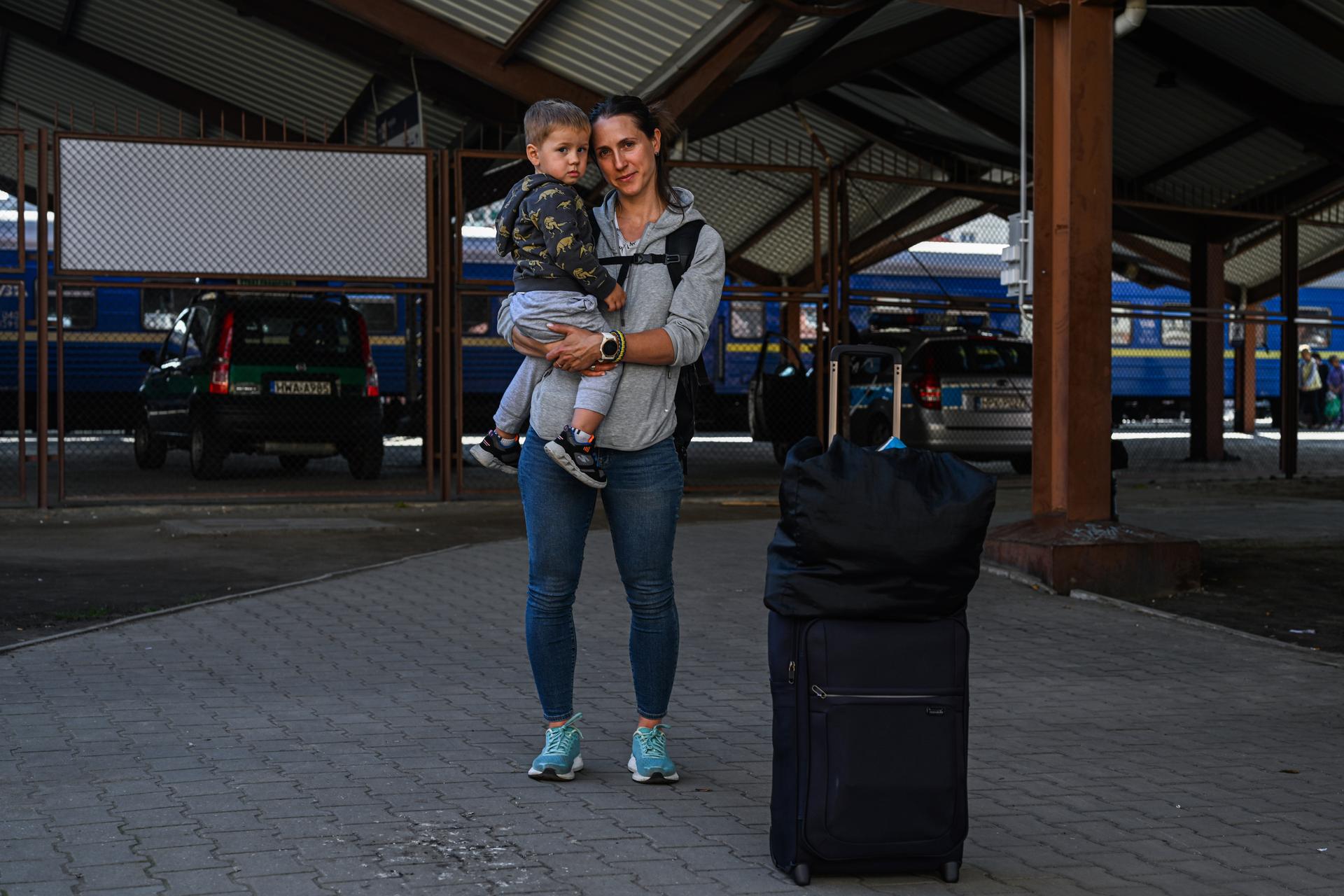
“You feel you are at home, but I understand that it’s too dangerous to go back with the kids [permanently],” she said.
“It’s like a lottery … where will the bomb will be tomorrow?”
For now, Balabanoza said that she’s thankful that her family is settled in Sweden.
But she said that her heart is in Ukraine, and she’s waiting for the day that she can go back for good.
